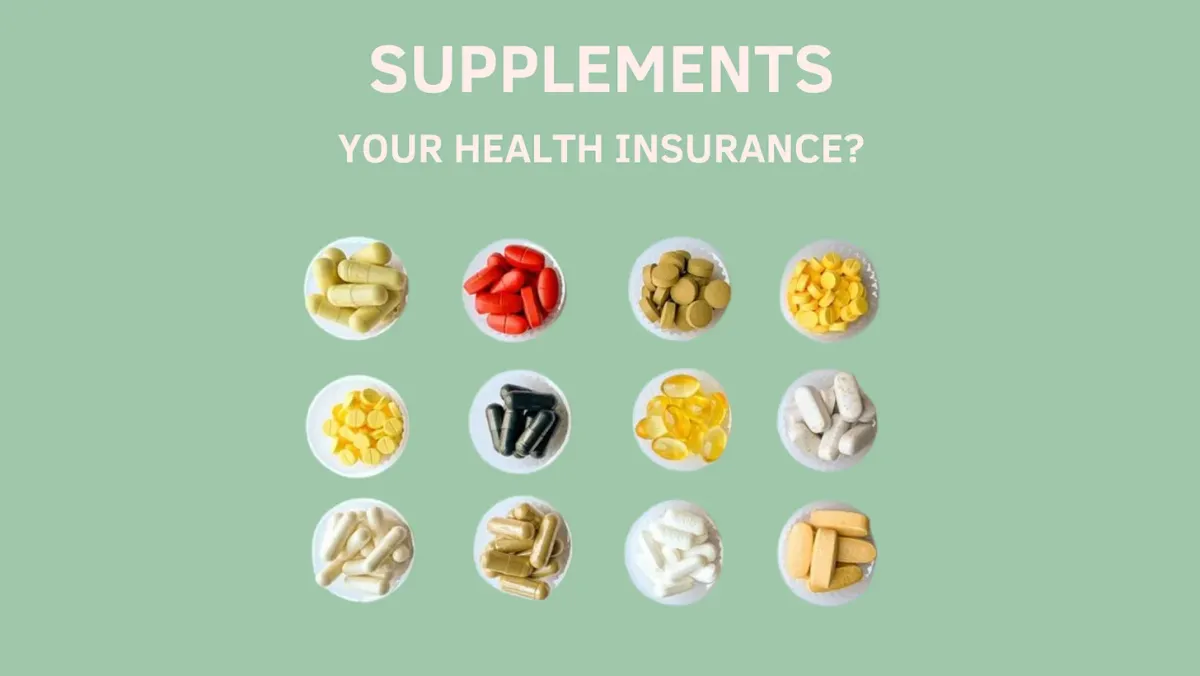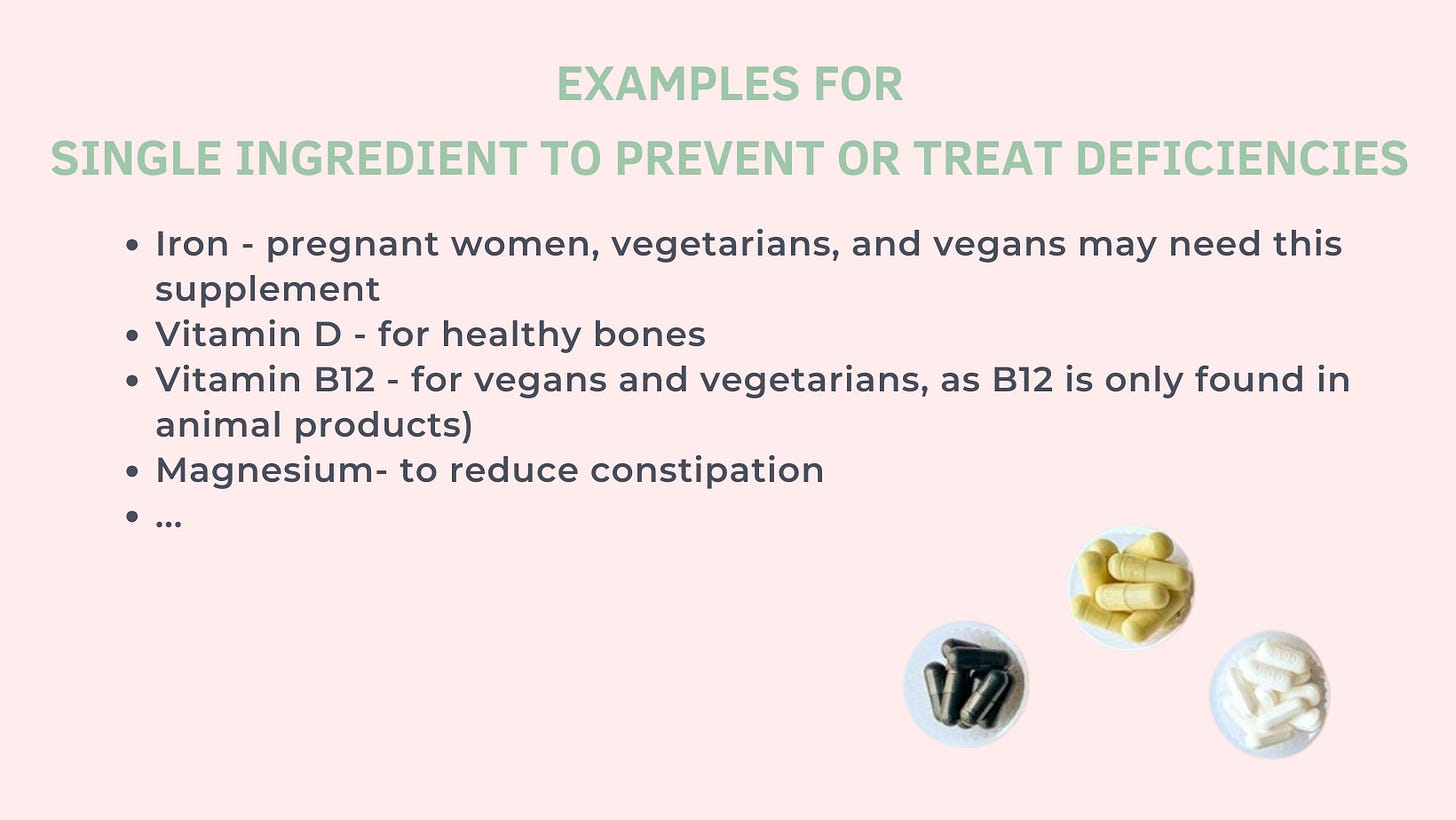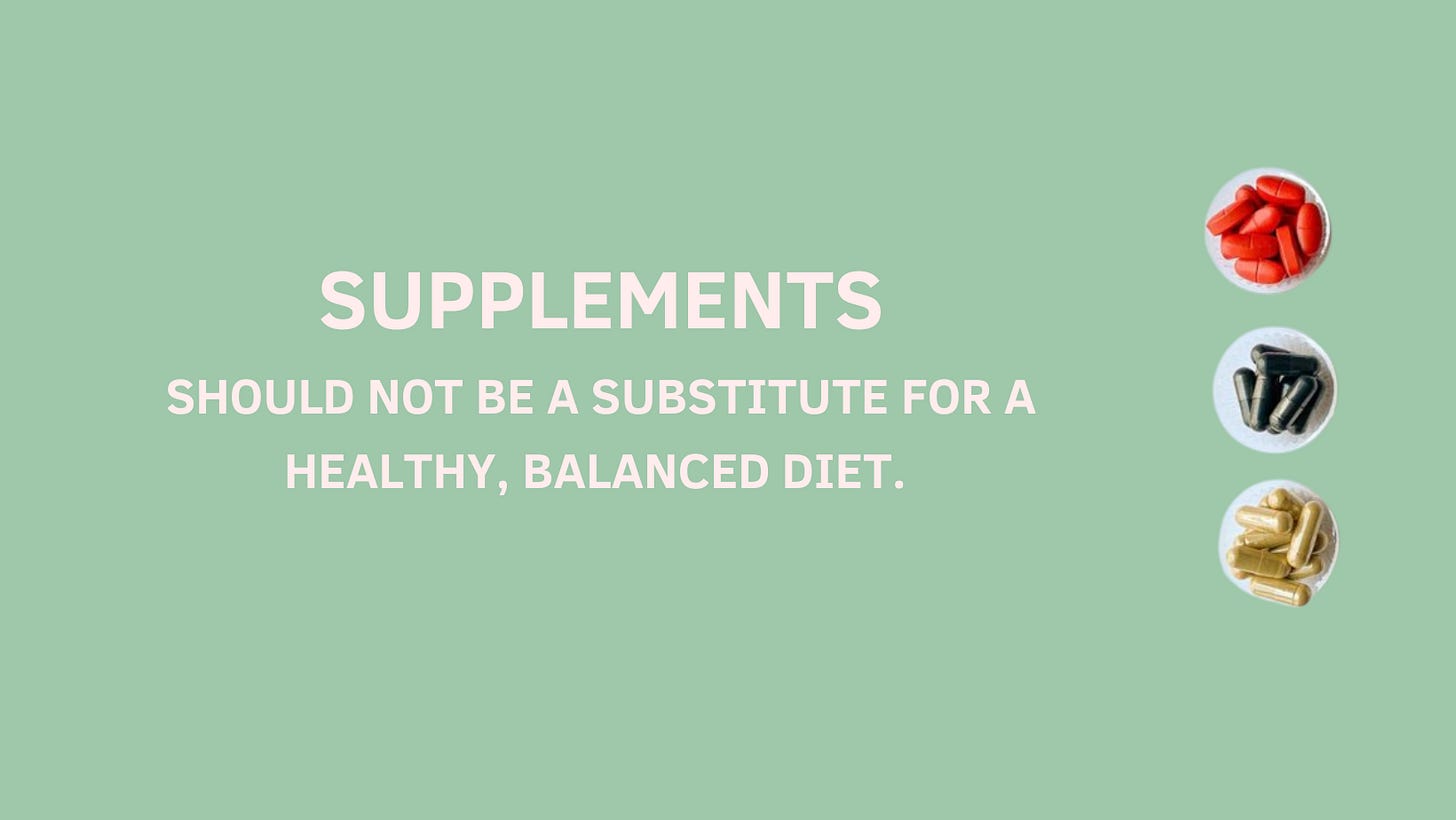Thoughts on Food Supplements

Food supplements such as vitamins, minerals, amino acids, and nutrient powders are a hot topic; and some people may even consider supplements as their insurance for health and longevity.
Supplements can be high quality and thorougly tested, but they can also be pure rip-offs as well. Throwing many vitamins together and labeling them “Fertility Support” or “Gut Health” is something different than taking one single vitamin to enhance your diet. And that’s confusing.
I certainly struggled to find the prenatal vitamin I felt comfortable taking. (Thinking about my health and the development of the baby). I’m also looking at my friends who experience unpleasant period symptoms, or athletes who want the best for their recovery.
But how are you supposed to cut through all the available products and their claims to know what is effective and what is a waste of money? And more importantly, what is safe? It’s getting harder and harder to tell, with all the influencers, celebrities and also medical professionals promoting certain products.
With this in mind, I'd like to introduce you to my own “supplement classification tool”. This is by far not an official classification system, but helps me to organize my thoughts and evaluate claims more quickly.
First question:
Is it a single ingredient to prevent or treat a nutrient deficiency?
The keywords here are “nutrient deficiency," so ginger for nausea, black cohosh for hot flashes, or taking vitamin E because you think it's an antioxidant are not part of this category.
This group are vitamins and minerals used to compensate for a nutrient deficiency. For this category, you should easily find information about these nutrients from their respective (medical) societies or your government (e.g., AGES, DGE, CDC, ...).

In the US, the CDC has good information on many nutrients and when supplements are indicated. As recommendations can vary from country to country, I recommend checking local agencies such as AGES in Austria or DGE in Germany.
I also think it's smart to check multiple sources to ensure the recommendations are the same. Meaning: Don’t rely on a single piece of information from a company or celebrity, especially if they are endorsing a supplement (single or multi-ingredient).
Bottom line:
Single-ingredient vitamin or mineral supplements are recommended for people who can’t meet their nutritional needs.
Second Question:
Is this a multivitamin?
A multivitamin contains a combination of vitamins and minerals and sometimes other ingredients. There are situations, such as pregnancy, older age, or after a specific surgery, when the intake of multiple nutrients can be difficult due to the body’s extra needs.
Sidenote on age here: Appetite may decrease with age, but nutrient requirements do not. This means that you eat less food but still need the same amount of nutrients, which can lead to deficiencies. That’s why a multivitamin may be needed.
However, a multivitamin is not necessarily needed if someone is on a whole-food diet but is just struggling to eat a variety of foods.
My recommendation for this person is to change their behavior in small steps, so they receive all necessary nutrients eventually rather than opting for a vitamin pill.

I understand that when you travel a lot, have plenty of work events, and less impact on the food selection, it is challenging to meet all your nutrient requirements, but don’t forget you have a choice AND you can choose to eat or not eat certain foods or drinks.
Bottom line:
If you really need a multivitamin, look for one that has been reviewed by a third party and its ingredients can be traced back.
Personally, I am a big fan of Ritual and their approach.
